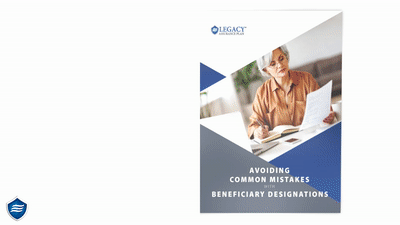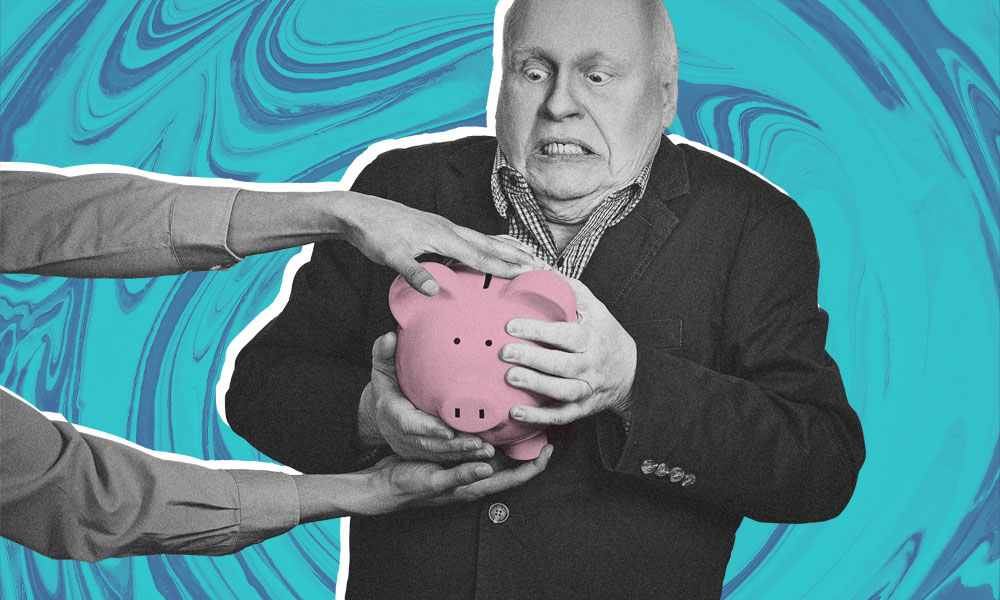"I never thought it would happen to our family." These words echo through courtrooms across America as shocked relatives discover their loved one's lifetime of careful planning has been hijacked in their vulnerable final years. The culprit? Not a faceless criminal, but often someone who gained trust, care and access — then methodically redirected an entire legacy.
Court documents published in 2025 reveal such a scheme in Dowling v. Uriostegui, where an elderly California man's decades-long estate plan was systematically dismantled. For nearly 10 years, Prescott Dowling had arranged for his assets to benefit his son, Gregory, and grandchildren. Then, in a stunning reversal during his diminished final years, everything changed. The court discovered a non-family member had orchestrated Prescott's isolation from family while simultaneously convincing him to transfer his entire estate away from his natural heirs — a textbook case of what legal experts call "undue influence."
What is undue influence in estate planning?
Undue influence means “excessive persuasion that causes another person to act or refrain from acting by overcoming that person’s free will and results in inequity,” according to the American Bar Association. In the context of estate planning, this often involves pressuring someone to change their will, trust or other estate documents.
This manipulation frequently targets seniors who may be experiencing cognitive decline, physical limitations or emotional vulnerability. The perpetrators are often friends, caregivers or even family members who gradually gain control by exploiting trust and dependency.
Inside the Dowling case: A cautionary tale of trust betrayed

The exploitation of Prescott Dowling reveals how vulnerability and trusted relationships can become pathways to financial abuse. In 2005, Prescott and his wife Ellen established a revocable trust for their sons Gregory and Richard. Following Ellen's death in 2011 and Richard's death in 2012, Prescott, then in his 80s, faced profound grief and increasing isolation.
Diane Uriostegui, who had dated Richard in the 1990s and remained friends with the family, positioned herself as Prescott's "trusted" friend — even "like a sister." Their relationship began changing in May 2012 when Prescott paid over $300,000 to help pay off a promissory note on Diane's residential property. By 2014, Prescott was becoming inexplicably angry with Gregory.
The manipulation culminated in 2015 when Diane had an attorney prepare an amended trust that completely disinherited Gregory and his children, making herself the sole beneficiary. After Prescott's death in June 2016, Diane took control of $1.8 million in trust funds, transferring them to her personal account and rapidly depleting the assets. She later admitted to losing most of the money gambling at racetracks, stating simply, "I love gambling."
Diane also gifted $250,000 to her son Rob, who purchased luxury cars and racehorses, and posted about his new wealth on social media. Between them, they decimated the trust estate, leaving only $750,000 of the original $1.8 million. Rob testified that he "gambled away or spent on horses" nearly all the money he received.
The court ultimately found this dramatic reversal of Prescott's decade-long estate plan resulted directly from Diane's undue influence. It ordered the trust be administered according to the last version reflecting Prescott's true intentions before the manipulation began.
How can you recognize signs of undue influence?

Protecting your loved ones begins with awareness. One of the most telltale signs of undue influence is an unexpected and significant change to estate planning documents, especially when they benefit someone who recently entered the person's life or who has unusual control over their affairs. In the Dowling case, the court noted that the changes deviated from "an almost 10-year plan" of leaving assets to family members.
Manipulators often work to separate vulnerable individuals from their support networks. They may restrict visitors, regulate phone calls or control which family members have access to the elder. This isolation makes the elder more dependent on the manipulator and less likely to receive independent advice or support.
When a caregiver friend or even a family member takes charge of an elder's finances living arrangements and personal decisions beyond what's necessary for proper care, it may signal undue influence. Watch for unexplained financial transactions, unusual gifts or property transfers.
Elders experiencing undue influence may seem afraid to speak freely, especially in the presence of the suspected influencer. They might defer questions to that person or look to them for approval before answering.
Why are seniors particularly vulnerable to undue influence?
Understanding vulnerability factors can help you protect yourself and your loved ones. Age-related cognitive changes can impair judgment, decision-making and the ability to recognize manipulation. Even mild dementia can significantly increase vulnerability to undue influence without eliminating legal capacity.
Seniors who live alone or have limited social connections are at higher risk. The death of a spouse, withdrawal from social activities or geographic distance from family members can create opportunities for manipulative individuals to establish control.
Reliance on others for basic needs such as transportation, medical care or household management creates power imbalances that can be exploited. This dependency often grows gradually, making it difficult to recognize when assistance crosses into control.
How can you protect your estate plan from undue influence?

Taking proactive steps now can safeguard your estate plan and provide peace of mind. When you work with an experienced estate planning attorney who understands the risk of undue influence, they can help you create documents with specific protections such as:
- Including no-contest clauses in wills and trusts.
- Establishing clear capacity documentation at the time documents are created.
- Creating video recordings of document signings to demonstrate capacity and free will.
- Implementing gradual rather than sudden changes to long-standing estate plans.
While your estate plan is ultimately private, sharing your general intentions with family members can create accountability and reduce the risk of manipulation. Consider discussing your estate planning goals with trusted family members, explaining unusual bequests or changes in advance and introducing professionals assisting you to key family members.
Building a team of independent professionals creates checks and balances that make undue influence more difficult. Working with a who knows your long-term goals, maintaining relationships with multiple professionals rather than allowing one person to control all aspects of your affairs and considering a professional fiduciary or trust company for complex situations can all help protect your estate plan.
What legal remedies exist when undue influence occurs?
Despite prevention efforts, undue influence still happens. Understanding the available legal remedies is crucial. Family members who suspect undue influence can contest estate documents in probate court. The Dowling case demonstrates that courts can and do invalidate documents created under undue influence. Evidence considered may include the elder's vulnerability and mental state, the influencer's opportunity to exert control suspicious timing or circumstances surrounding document changes and divergence from previously expressed wishes.
Many states have strong elder abuse laws that provide civil remedies for financial exploitation through undue influence. These may include return of misappropriated assets, attorney's fees and costs damages for emotional distress and punitive damages in cases of recklessness fraud or malice.
When an elder person is being exploited, family members may petition the court for a conservatorship or guardianship to protect them. While this is a significant legal step, it can prevent further financial exploitation and provide professional oversight of the elder's affairs.
Conclusion
The story of Prescott Dowling serves as a powerful reminder that estate planning is not merely about documents but about protecting your voice and your choices. By understanding undue influence, recognizing vulnerability factors and implementing preventative strategies, you can ensure that your true wishes remain at the heart of your legacy.
Estate planning is ultimately about more than assets — it's about relationships, values and the lasting impact you wish to have. Don't let undue influence distort that legacy. Remember that the best protection against undue influence combines legal safeguards, transparent communication and ongoing family involvement.



